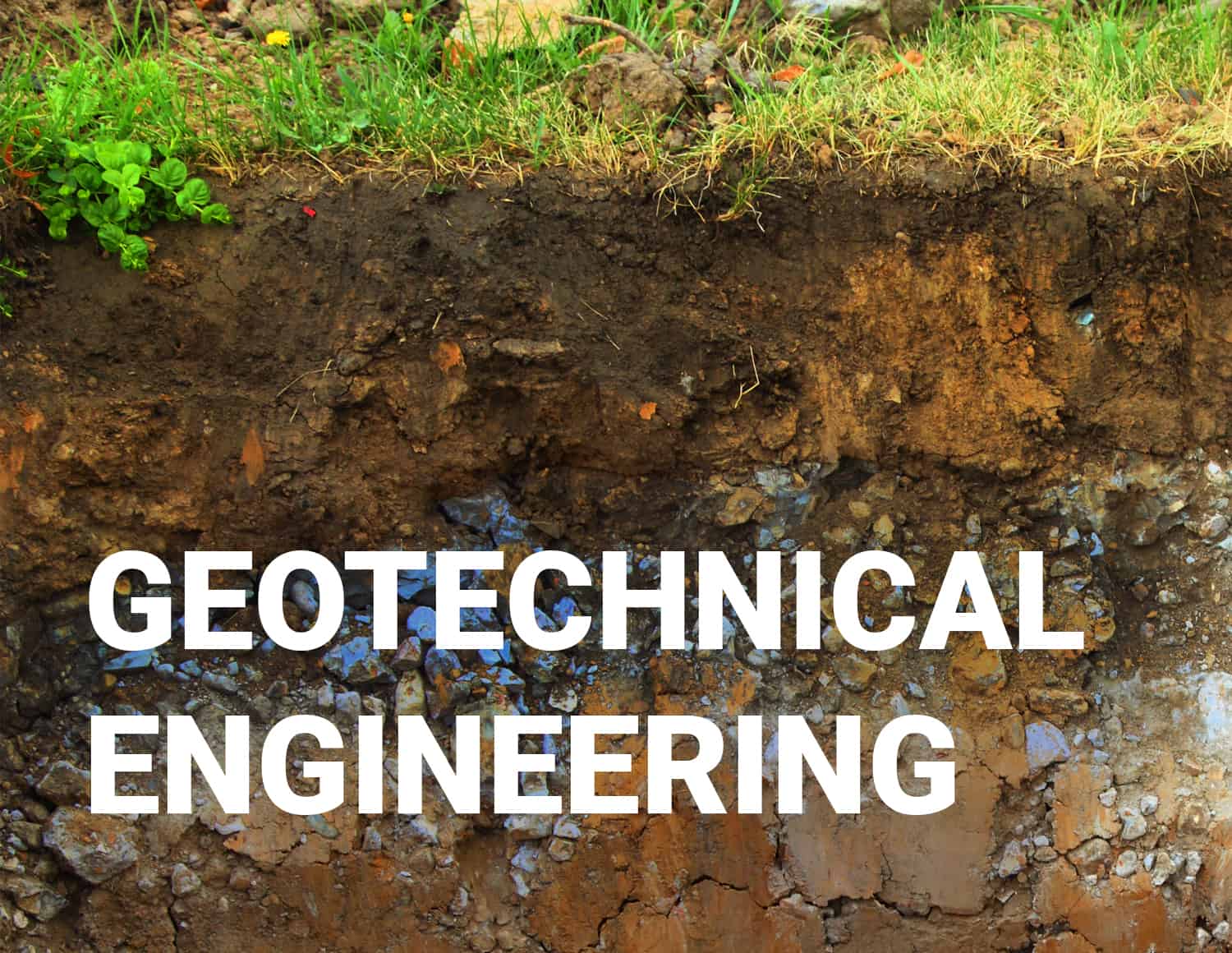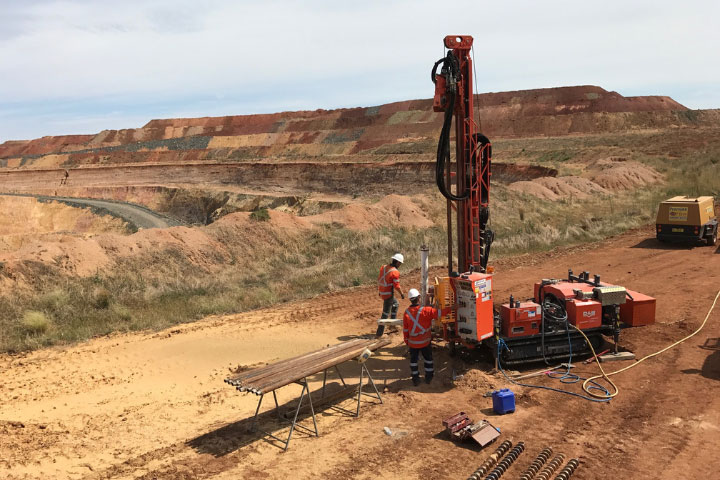Leading Reasons to Hire a Geotechnical Specialist for Your Construction Jobs
Leading Reasons to Hire a Geotechnical Specialist for Your Construction Jobs
Blog Article
The Value of Geotechnical Engineering in Addressing Environmental Difficulties and Enhancing Building Security
Geotechnical design offers as a foundation in the junction of ecological stewardship and building and construction safety and security, offering vital understandings into the actions of dirt and rock under various conditions. By executing calculated site examinations and tailored mitigation steps, geotechnical designers play an essential function in protecting both human lives and environmental stability.

Duty of Geotechnical Engineering
Geotechnical design plays a critical role in the design and construction of framework by attending to the behavior of soil and rock products under numerous problems. This field of engineering is necessary for understanding the interaction between structures and the ground, that includes figuring out the load-bearing ability of dirt, examining stability, and forecasting possible negotiation or failing.
Geotechnical designers are accountable for carrying out site examinations, which entail sampling and testing soil and rock to collect data on their chemical and physical residential properties. This details is essential for making structures, preserving walls, and various other earth-retaining structures that guarantee safety and security and long life. Geotechnical design informs the selection of ideal building techniques and materials, therefore decreasing threats associated with soil habits.
Additionally, the assimilation of geotechnical engineering principles into city preparation and ecological administration is critical for resolving obstacles such as ground contamination and groundwater administration. By recognizing geotechnical factors, designers can develop lasting remedies that improve the strength of framework against all-natural risks, while also promoting ecological stewardship. Inevitably, the role of geotechnical engineering is important for attaining secure, sturdy, and eco conscious building techniques.
Soil Erosion Mitigation
Dirt erosion poses a considerable hazard to both ecological security and facilities stability, affecting roughly 24 billion lots of abundant soil shed every year worldwide. This sensation is worsened by elements such as deforestation, urbanization, and poor farming techniques. Geotechnical design plays a crucial function in creating efficient soil erosion reduction methods that guard both the atmosphere and construction jobs.
One approach entails the execution of erosion control approaches such as greenery growing, which stabilizes soil with origin systems. Additionally, the construction of maintaining terraces and walls can efficiently reduce surface area runoff and shield prone locations from erosion. Appropriate drain layout is additionally crucial; it reduces water accumulation and routes excess overflow far from critical structures.
Furthermore, geotechnical engineers utilize soil stabilization strategies, such as the application of geotextiles and naturally degradable mats, to enhance dirt communication and prevent destruction - geotechnical specialist. Normal monitoring and evaluation of erosion-prone sites enable timely treatments, guaranteeing long-term sustainability. By incorporating these methods, geotechnical engineering not only mitigates the effects of soil erosion but also adds to the strength of infrastructure versus environmental difficulties, ultimately fostering a safer and a lot more sustainable constructed environment
Groundwater Defense Approaches
Groundwater works as an essential resource for drinking water, agriculture, and commercial processes, making its defense vital for ecological sustainability and public wellness. Reliable groundwater protection approaches are important in minimizing contamination dangers and guaranteeing the long life of this resource.

Regular tracking of groundwater quality is additionally crucial, enabling early discovery of contamination sources and assisting in prompt removal initiatives. Using innovative technologies, such as geophysical studies and remote picking up, aids in browse around here determining possible dangers to groundwater books.
Additionally, public education and learning and stakeholder interaction are critical, promoting area support for groundwater defense initiatives. about geotechnical engineering. By incorporating regulatory procedures, technical advancements, and community participation, we can develop a comprehensive framework that safeguards groundwater sources while promoting lasting growth and building and construction methods
Landslide Danger Management
Landslides position considerable dangers to both human safety and infrastructure, making effective risk administration approaches vital. Geotechnical engineering plays an important function in identifying, analyzing, and mitigating landslide risks. A thorough understanding of incline stability, soil auto mechanics, and hydrology is important for establishing efficient danger monitoring plans.
The primary step in landslide threat administration includes complete site investigations, which include geological mapping and dirt screening. These examinations aid engineers assess the possibility for landslides by identifying important aspects such as incline angles, soil structure, and water web content. Using advanced modern technologies such as remote sensing and geophysical surveys can improve the precision of these assessments.
When risks are recognized, suitable mitigation steps can be carried out. These might include design solutions such as maintaining wall surfaces, drain systems, and slope stablizing methods. In addition, keeping an eye on systems should be developed to detect indicators of ground movement and adjustments in water degrees, enabling proactive interventions.

Enhancing Building Safety
Construction sites typically offer a myriad of risks that can jeopardize worker security and job stability. Geotechnical engineering plays a vital duty in improving construction safety and security by providing essential insights into subsurface conditions. Through extensive soil and rock evaluation, geotechnical designers can identify potential dangers, such as soil instability, groundwater issues, and seismic vulnerabilities, which may jeopardize the security of construction tasks.
Implementing geotechnical remedies, such as proper foundation layout and their explanation the usage of keeping structures, reduces these threats significantly. These solutions not just make certain the stability of the frameworks being developed but also produce a more secure working environment for construction workers.
Moreover, fostering a culture of safety and security through training and adherence to established safety methods better improves construction site safety and security. By integrating geotechnical proficiency into the planning and implementation phases, building and construction tasks can attain greater security requirements, ultimately shielding workers and making sure successful job conclusion.
Final Thought
In final thought, geotechnical design serves as a vital technique in tackling environmental difficulties and advertising construction safety and security. With effective dirt erosion reduction, groundwater defense techniques, and landslide threat administration, geotechnical engineers contribute to the development of durable framework.
Geotechnical design serves as a keystone in the intersection of ecological stewardship and construction security, giving important understandings into the actions of soil and rock under various conditions. Geotechnical engineering informs the option of proper construction methods and materials, consequently minimizing threats associated with dirt behavior.
Geotechnical design plays a crucial function in establishing effective dirt disintegration mitigation approaches that protect both the environment and building tasks.
Moreover, geotechnical designers employ dirt stablizing strategies, such as the application of geotextiles and eco-friendly floor coverings, to boost dirt communication and stop deterioration. Via detailed dirt and rock analysis, geotechnical designers can recognize prospective dangers, such as soil instability, groundwater concerns, and seismic vulnerabilities, which may compromise the security of building tasks.
Report this page